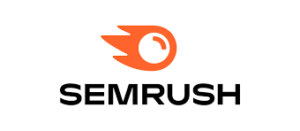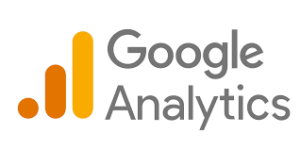Which SEO Tool is Best?
When it comes to SEO, tools are your best friend or your worst enemy. With hundreds of options out there, it can be overwhelming to pick the right one. But don’t worry, you’re not alone in this search! SEO professionals, marketers, and businesses alike face the same question: which SEO tool is the best for improving rankings, boosting traffic, and driving business growth?
Here’s the thing, there isn’t a one-size-fits-all answer. The right tool for you depends on your specific needs, goals, and the stage of your SEO journey. Whether you’re just starting to optimize your site or are deep into advanced technical SEO, choosing the best tool can be the key to unlocking real results.
In this post, we’ll dive into the top SEO tools, what they offer, and how to decide which one suits your needs. Let’s get to it!
Understanding the Need for SEO Tools
Before we dive into the different tools, let’s briefly explore why SEO tools are so critical. SEO is about more than just keywords—it’s about understanding your audience, improving site performance, and optimizing for search engines like Google. And you can’t do that effectively without data. SEO tools provide the insights you need to make informed decisions. They help you track your rankings, audit your website, find keyword opportunities, and even spy on your competitors.
But with so many options, how do you know which one is best?
What Makes an SEO Tool “The Best”?
The best SEO tools stand out because they are:
- Comprehensive: They cover all aspects of SEO, from on-page optimization to backlink analysis.
- User-Friendly: While you want the tool to be powerful, you also need it to be easy to navigate. A confusing interface can waste your time.
- Accurate: Accuracy is key when it comes to tracking rankings, analyzing competition, or doing keyword research.
- Scalable: Your SEO efforts grow over time. A good tool should grow with you, offering advanced features as your needs become more sophisticated.
With that said, let’s break down some of the top contenders!


Top SEO Tools to Consider
1. SEMrush
If you’re looking for an all-in-one SEO toolkit, SEMrush is often the first name that comes up. It’s packed with features—keyword research, competitor analysis, site audits, backlink tracking, and much more.
But here’s the kicker: SEMrush also offers highly detailed competitor insights. If you’re trying to outsmart your competition, this tool lets you peek into their strategies, their keywords, and even their traffic sources. Think of it as your digital spy.
Actionable Tip: Start by analyzing your competitors’ top-performing pages and keywords, then tailor your strategy based on that data. The insights are gold!
2. Ahrefs
Ahrefs is another powerhouse tool that’s favored by many SEO pros. It’s known for its backlink analysis and keyword research capabilities. In fact, Ahrefs has one of the largest backlink databases, which makes it a fantastic resource for link-building strategies.
What’s great about Ahrefs is its ability to track the performance of your content over time. By seeing which pages are getting the most organic traffic, you can optimize them further to maximize their potential.
Actionable Tip: Use Ahrefs to conduct an in-depth content audit and uncover gaps in your existing content. Revamping old content based on this data can lead to a significant boost in rankings!
3. Moz Pro
Moz Pro has been a staple in the SEO industry for years. Known for its user-friendly interface and excellent customer support, Moz Pro is great for businesses of all sizes. While it offers the usual features like keyword research and site audits, Moz’s standout tool is its Keyword Explorer, which provides in-depth insights into keyword difficulty and search volume.
Actionable Tip: If you’re a beginner, start with Moz’s Keyword Explorer to build a solid foundation for your keyword strategy. It’s simple but effective!
4. Google Search Console
If you’re looking for a free and highly accurate SEO tool, look no further than Google Search Console. While it doesn’t offer all the bells and whistles of some paid tools, it gives you direct insights from Google itself. Search Console shows how your site is performing in the search results, which keywords bring in traffic, and where there may be technical issues.
Actionable Tip: Regularly monitor the Performance tab in Google Search Console to keep tabs on your site’s traffic and keyword rankings.
5. Screaming Frog SEO Spider
For those who need deep, technical SEO insights, Screaming Frog SEO Spider is a must. This tool crawls your entire website, identifying issues related to broken links, duplicate content, missing meta descriptions, and more. It’s especially useful for technical audits, and it integrates with Google Analytics and Search Console.
Actionable Tip: Use Screaming Frog for periodic technical audits. It’s especially useful when you’re redesigning your site or migrating to a new platform.
Final Thoughts
Choosing the best SEO tool doesn’t have to be daunting. With the right combination of features, user experience, and data accuracy, the right tool can transform your SEO efforts. Whether you go with SEMrush, Ahrefs, Moz Pro, or Google Search Console, there’s a perfect tool waiting for you. Now, it’s time to dive in and take your SEO game to the next level!
If you want to get even more insights into which tools are best for specific SEO tasks, check out these detailed reviews on SEMrush, Ahrefs, and Moz. Happy optimizing!

